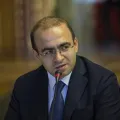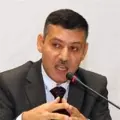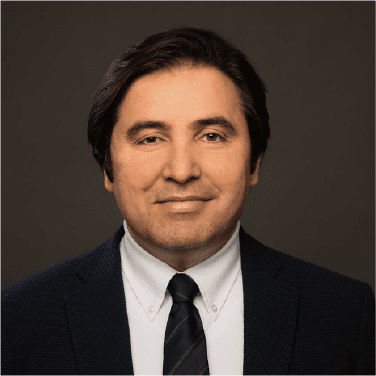Deciphering Turkey’s new regional policy
July 13, 2020
Summary
The Brookings Doha Center (BDC) hosted a webinar discussion on July 13, 2020, on Turkey’s ambitious foreign policy strategy in the Middle East and North Africa (MENA) region, which considered the factors motivating this approach as well as its implications. The panel consisted of a group of distinguished scholars and experts, including Tarek Megerisi, policy fellow at the European Council on Foreign Relations; Marwan Kabalan, director of policy analysis at the Arab Centre for Research and Policy Studies; Abdullah K. Alshayji, professor of political science at Kuwait University; Taha Ozhan, academic visitor at Oxford University; and Fuat Keyman, director of the Istanbul Policy Center. Galip Dalay, nonresident fellow at the BDC, moderated the event.
Tarek Megerisi began the discussion by outlining the impact of Turkish intervention on the Libyan conflict. He noted that Turkey formally intervened in December 2019, when forces tied to General Khalifa Hifter were moving closer to central Tripoli. By stepping in, the country completely rearranged the conflict’s dynamic. According to Megerisi, Turkish intervention has resulted in a change in leadership of the opposition forces, the fracturing of eastern forces, and a strengthening of the Government of National Accord (GNA). However, a challenge that Turkey will face is whether it can maintain peace in western Libya. In addition, the battle for Sirte and the Jufra airbase looms on the horizon and even if a deal is made, tensions will likely rise. As it stands, eastern-based forces control oil installations and can use the Jufra base to launch attacks at any moment. Megerisi stated that in the long-term, Turkey and the GNA will look to build up their position of power and improve their ability to negotiate with eastern factions and countries like Egypt.
Addressing Turkey’s role in the Syrian conflict, Marwan Kabalan continued the discussion. Firstly, he stated that it is difficult to discuss one Turkish policy in Syria as the strategy has changed over time. In the early days, Ankara practiced non-interference before deciding to engage militarily in 2016. In between, Turkey played multiple roles from trying to convince President Bashar Assad to accept a power sharing agreement in the early months to providing the opposition with military support later. While Turkey’s impact has varied throughout the years, one military objective that the country has reached is preventing the establishment of a Kurdish corridor along the border. In the coming months, Kabalan mentioned that Turkey will face several challenges in Syria. It is unclear whether the Astana process will survive. In addition, a change of administration in the upcoming U.S. presidential elections may threaten the stance that both Turkey and the United States share on the question of Idlib. Finally, Turkey is grappling with de-radicalizing Hayat Tahrir al-Sham and incorporating it into the political process.
Abdullah K. Alshayji emphasized that Turkey does not have big ambitions in the Gulf region. However, regarding the MENA region more broadly, the country is playing a balancing role against Western powers in Syria, Libya, and Iraq. He mentioned that with the United States’ withdrawal from the Middle East, Turkey is trying to become a hegemonic power and spoil the role of Saudi Arabia and the United Arab Emirates (UAE) as the dominant players in the MENA region. This was especially apparent in the establishment of a Turkish military base in Doha after the Gulf crisis. Alshayji stressed that Turkish relations with Gulf states, especially Oman, Kuwait, and Qatar involve the sale of arms and that Turkey is becoming a major producer of armaments. Finally, the professor noted that the upcoming U.S. presidential election will not impact Turkey’s role in the Gulf. The United States’ military involvement in the Middle East will continue to decrease regardless of whether President Donald Trump is reelected.
Taha Ozhan continued the discussion and contended that Turkey’s foreign policy in the MENA region and the Eastern Mediterranean would remain the same even if President Recep Tayyip Erdogan is replaced. Although, a different leader might allow for a shift in Turkish-Russian relations, and ties to the United States as a result. Ohzan pointed out the difficulty in distinguishing between Turkish domestic and foreign policy. He stated that the country first manages its foreign policy approach at home before advancing it abroad. According to Ozhan, Turkey began to develop a comprehensive foreign policy in the early 2000s. However, this approach began to fracture in 2011 as the country faced challenges in the domestic political sphere. Moreover, Turkey’s foreign policy also suffered due to global developments including former President Barack Obama’s indecisiveness vis-à-vis the MENA region. The academic stated that since 2014, Turkey only acts proactively on the regional scene if it can engage militarily. Finally, he noted that the Turkish-Russian relationship is solely tactical and unsustainable in the long-term.
Fuat Keyman outlined four major shifts that Turkish foreign policy has undergone since 2002. Firstly, Ankara has moved from exhibiting soft power based pro-activism to a hard power approach characterized by selective pro-activism. Turkey’s soft power approach was founded upon the country’s role as a trading state and a model for how Islam, democracy, and modernity can co-exist. However, over the last five years, President Erdogan has flexed hard power through military offensives and establishing bases across MENA states. Secondly, from working within institutional arrangements such as the European Union (EU), Turkey now acts through flexible alliances. Thirdly, while Turkey began the 21stcentury by looking to balance between maintaining security and democracy, it has since prioritized the former over the latter. Finally, while at the beginning of the 21st century Turkey demonstrated an attachment to the West and EU, today it practices a foreign policy based on “strategic autonomy.” Keyman contended that these shifts have hampered the country’s potential to contribute to regional stability. Turkey has grown more ambitious over the years and its alliances to Western and MENA states have suffered as a result.
The subsequent question and answer session focused on the Kurdish question, Turkey’s ties to MENA states, and France’s involvement in Libya. Keyman contended that the Kurdish question has in part caused the securitization of Turkey’s foreign policy and that Ankara’s policy towards Kurds in the region has harmed Syria and Iraq. Ozhan noted that Turkish-Egyptian relations cannot advance in the future as Egypt lies within an axis that has positioned itself against Ankara, which includes Saudi Arabia, the UAE, and Israel. Alshayji noted that the Gulf crisis solidified the Turkish-Qatari alliance but that other Gulf states still view Turkey in a disparaging manner. Kabalan stated that Iran is in a much weaker position than it was a couple years ago in the dynamic between Turkey and Russia in Syria. Megerisi noted that Turkish-French confrontation will define the conflict over the coming months and complicates Europe’s larger role.
Speakers
Fuat Keyman
Director of the Istanbul Policy Center

Taha Ozhan
Research Director, Ankara Institute

Marwan Kabalan
Director of policy analysis at the Arab Centre for Research and Policy Studies

Tarek Megerisi
Policy fellow at the European Council on Foreign Relations


